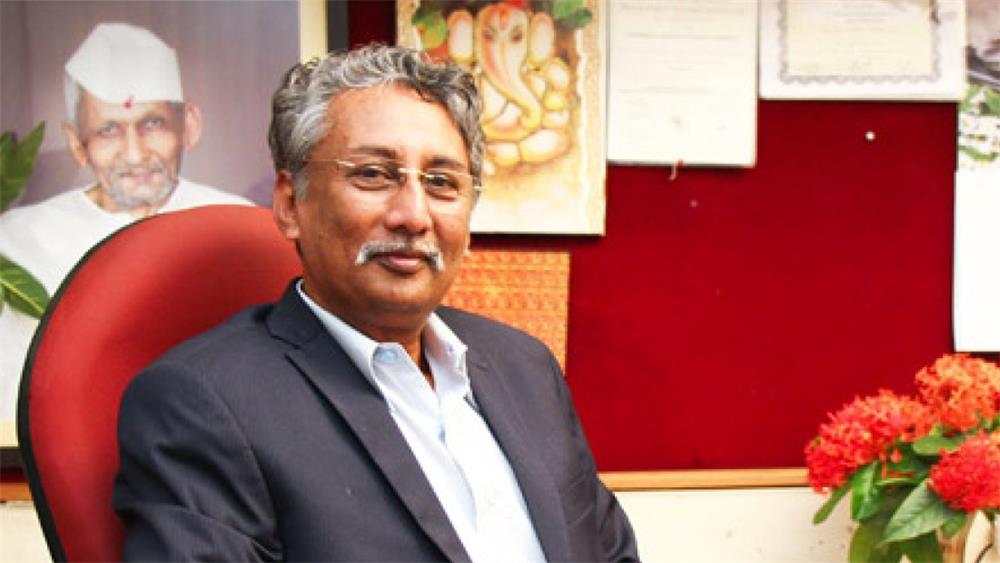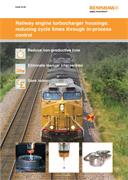Ta strona nie jest obecnie dostępna w Twoim języku. Możesz zapoznać się z tłumaczeniem automatycznym, korzystając z usługi Google Translate. Nie jesteśmy odpowiedzialni za świadczenie tej usługi, ani też wyniki tłumaczenia nie były przez nas sprawdzane.
Jeżeli chciałbyś uzyskać więcej pomocy skontaktuj się z nami.
“It’s a revolutionary product!” claims Unimac following a four month return on investment
The Pune-based Universal Manufacturing Company (Unimac) has consistently reduced inspection time by 90% over four months after installing a Primo™ system, designed for on-machine part setting, part inspection and tool setting.
Innovative probing
Unimac manufactures components for railway engines, power generation plants, cement manufacturing plants, and other heavy engineering applications. For Unimac, maintaining accuracy of 15-20 microns on large parts is vital.
The Primo system consists of a Primo Radio Part Setter and a Primo Radio 3D Tool Setter. It enables automated on-machine part setting, part inspection and tool setting, helping to eliminate manual setting errors, improve accuracy and part conformance, whilst reducing non-productive time and scrap. All of which increase productivity, improve quality and boost profits.
The Primo system is straightforward to install and use, and represents a low initial financial outlay. It also has an exclusive, enhanced warranty to offer users peace of mind.
Up and running in a day
It is so easy to use the Primo system that at Unimac its installation and evaluation were completed on the same day. The Primo GoProbe training kit and pocket guide make it very quick to learn and implement the system. A key benefit is that there is no need for extensive G-code knowledge. Simple, single line commands are used instead of multiple lines of code, removing the necessity for any special training.

Unimac, the company
Mr Mungale started Unimac in 1987, after purchasing a second-hand machine from Germany for manufacturing components needed in sugar and cement plants. He later switched to manufacturing general engineering components.Currently, the company manufactures large precision parts used for railway engines, power generation plants, cement manufacturing plants and other heavy engineering applications. The company has its own tool room, horizontal boring machines, floor boring machines, HMCs and VMCs. One of the VMCs has a bed size of 4.5 m x 2.75 m.
Making a difference
Unimac manufactures precision components, such as turbo chargers that are used in railway engines and one-off single components, for its customers. Before the Primo system was installed, the cycle time for machining a turbo charger housing was 46 hours. During this process, at the semi-finished stage, the part would be taken to an inspection facility to be checked for flatness, squareness, parallelism and positional
accuracy. The part would then be brought back to the machine, and have to be realigned and set before further machining could take place. This process would take three hours and have to be carried out twice, meaning that the machine lay idle for six hours during each manufacturing cycle. In this manual process, part setting itself takes 30 minutes.
The Primo system enables inspection to take place on‑machine, removing the need to breakdown and move the part, and reset it once it has been inspected. Now at Unimac, the new process takes just 30 minutes, has reduced inspection time by 90%, reduced cycle time by 12% and led to a very fast return on investment (ROI) in just four months.
“Another advantage of the Primo system is that it combines part set up, part inspection and tool setting capabilities in one system so there is no need to source separate items. The Primo system is definitely worth recommending for every engineering industry.”
Unimac (India)
Optimising throughput
Mr Mungale said, “After installing the Primo system, the manpower cost, material handling costs, material equipment and power consumption charges are saved so no additional investment is required. This gives flexibility to the manufacturing unit in accepting orders for any size and for segments such as the machine tool industry. The
manual analysis of results is also avoided, as the data is available on the same controller. It's an amazing experience to use Renishaw machine tool probes, which are being used by us for the first time.”
“Another advantage of the Primo system is that it combines part set up, part inspection and tool setting capabilities in one system so there is no need to source separate items. The Primo system is definitely worth recommending for every engineering industry.”
Building trust
Unimac first heard about Renishaw when ten years ago it purchased its CMM, which came fitted with a Renishaw probe. Following this, Unimac formed a relationship with Renishaw, and received regular updates about new product developments. Renishaw engineers analysed all of the machining applications at Unimac thoroughly, and offered best practice advice and guidance on which Renishaw products would be most suitable for Unimac's needs. The Primo system is the company's first machine tool probe.
Mr Mungale concluded, “Since we were convinced with the sales, service and application aspects of Renishaw, we installed its telescoping ballbar to help maintain machine accuracy. After this, it was easy to ascertain whether the fault was during machining and the errors could then be eliminated. Results from the ballbar are always perfect so a mutual trust has developed between Renishaw and us”.





